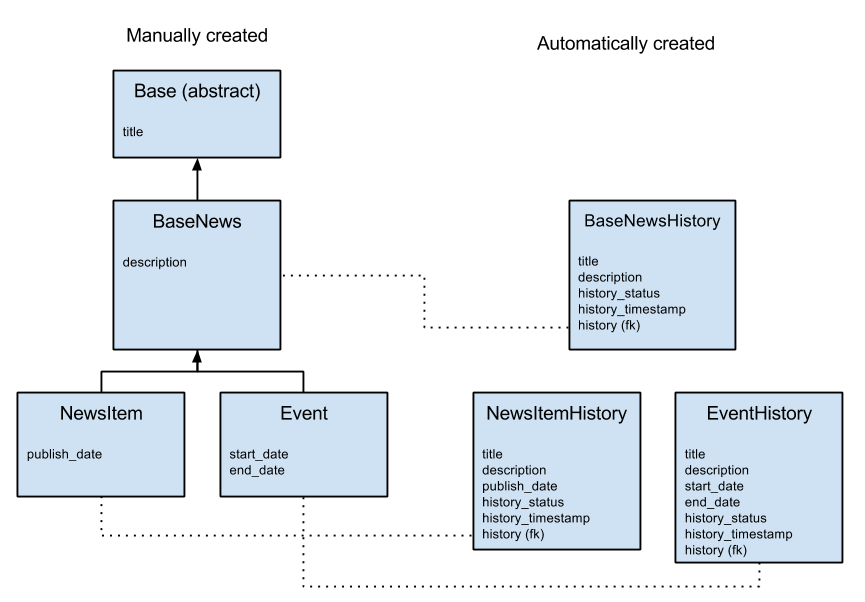django-model-history



Enable in any Model class an change history of all inserts, updates and deletes
Installation
In your settings.py
INSTALLED_APPS = (
'django.contrib.auth',
'django.contrib.contenttypes',
'django.contrib.sessions',
'django.contrib.sites',
'django.contrib.admin',
#.....................#
'model_history',
)
Option 1: In your models.py
You only must to update the parent class of your model.
from django.db import models
class MyModel(models.Model):
....
from model_history.models import ModelHistoryProvider
class MyModel(ModelHistoryProvider):
....
...
Option 2: In your models.py
Or you can call directly to the create_history_model_class function
from django.db import models
from model_history.models import create_history_model_class, BaseModelHistory
class MyModel(models.Model):
....
MyModelHistory = create_history_model_class(MyModel, (BaseModelHistory,))
Development
You can get the last bleeding edge version of django-model-history by doing a clone of its git repository
git clone https://github.com/goinnn/django-model-history
Example project

In the source tree, you will find a directory called example. It contains a readily setup project that uses django-model-history. You can run it as usual:
python manage.py makemigrations python manage.py syncdb --noinput python manage.py runserver
Access in a browser to http://localhost:8000/